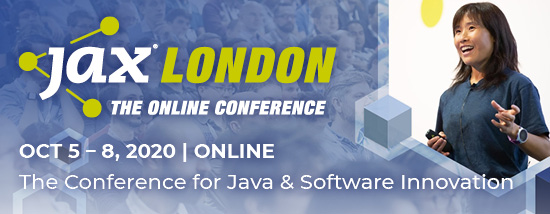A research study by The National Center for Women & Information Technology showed that “gender diversity has specific benefits in technology settings,” which could explain why tech companies have started to invest in initiatives that aim to boost the number of female applicants, recruit them in a more effective way, retain them for longer, and give them the opportunity to advance. But is it enough?
Three years ago, we launched a diversity series aimed at bringing the most inspirational and powerful women in the tech scene to your attention. Today, we’d like you to meet Nahid Akhtar, Data Engineer at McMakler.
Today’s Woman in Tech: Nahid Akhtar, Data Engineer at McMakler
 I received my first degree at the Pakistan Education Center in Doha, Qatar. I received my Bachelor’s degree from Fatima Jinnah Women University in Rawalpindi, Pakistan. Afterwards I worked as a lecturer at a state university. In 2016 I moved to Saarland for my Master’s degree. There I did my Master in Computer and Communication Technology at the University of Saarland. During my studies I was employed at Infineon Technologies and at the Max Planck Research Institute as a working student. Currently I am a data engineer at the full-service real estate service provider McMakler.
I received my first degree at the Pakistan Education Center in Doha, Qatar. I received my Bachelor’s degree from Fatima Jinnah Women University in Rawalpindi, Pakistan. Afterwards I worked as a lecturer at a state university. In 2016 I moved to Saarland for my Master’s degree. There I did my Master in Computer and Communication Technology at the University of Saarland. During my studies I was employed at Infineon Technologies and at the Max Planck Research Institute as a working student. Currently I am a data engineer at the full-service real estate service provider McMakler.
When did you become interested in technology?
When I was young, my father bought me a computer because I was top of the class in fifth grade. While I was looking at the gift-wrapped box, I asked my father what was in the box. His startling answer: “It’s something you can use to change the world.” From that moment on, I knew what my passion, what my dream would be.
How has your career path been so far?
I have worked really hard and learned from the mistakes I have made along the way. I always kept in mind who I wanted to be and who I wanted to become. That paved the way for my success. Life has presented me with a number of challenges to test my strengths and abilities. But I was very lucky to maneuver my way through them and reach the position I am in today.
Do you have a role model?
My mother. It was always my mother. As far as I remember, she was my rock. In a village in Swat where girls are not allowed to go to school, she dreamed of sending me to college and university so that I could achieve what she was denied. I never thought that she would be able to do that for me – to be so strong, to support me. But she did. She spurred me on to reach the spheres I dreamed of in my broken bed under an open sky, the never-ending dark clouds above me.
She is my mentor, my role model, my knight in shining armor, who always looks at me with a loving smile and a touch of pride – knowing that I was the first girl in my village to break through fixed borders and go abroad for her education.
Did you encounter any obstacles?
Yes, with every step came a hurdle. From my uncles who opposed my father because he sent me to school, to the tribal elders who believed that sending a girl to college was a pointless exercise, to the terrorists in Swat who also stopped Nobel Prize winner Malala Yousafzai.
I was confronted with many obstacles in my educational path. But after each fall I rose again with the belief that these barriers were erected to make me stronger and to convince me to realize my dreams and to show it even more to those people who believed they could stop me in my development.
A day in Nahid’s life
My current position is data engineer at McMakler. My day-to-day work includes developing and testing APIs using Flask, coding in Python, scheduling tasks in Airflow and building and maintaining data streams. I am also responsible for extracting, transforming and loading data from a wide range of data sources. I also work with many cloud services.
While I was looking at the gift-wrapped box, I asked my father what was in the box. His startling answer: “It’s something you can use to change the world.”
What projects have you developed?
Due to technological progress, social bots are considered the future communication channels in customer service. For this reason, I developed two social bots, both text-based and language-based, for my master’s thesis at Infineon Technologies. The work included transforming topics into question-answer pairs, creating an annotation scheme for these question-answer pairs, training each of them and then a final performance analysis of the bots. I pitched the idea at a hackathon at Infineon Technologies and won first prize.
Why aren’t there more women in tech?
Unlike men, women face many social and emotional challenges due to their technical jobs. They are constantly questioned and compared to the skills of their male colleagues rather than being appreciated for the unique skills they bring to the job. (As a generalisation, scientific studies have shown that women are usually better at multitasking and improvising, while men are better at analysis – all equally valuable skills in the industry).
Apart from this, women from more conservative backgrounds are exposed to various social pressures. From pregnancy to family responsibilities, these challenges are embedded in even the most modern societies. Another factor, whether we acknowledge it or not, is the cost of maternity leave that companies incur and which unconsciously discourages them from hiring women. Professional work attitudes sometimes do not conform to the socio-cultural norms of mostly conservative societies.
Would our world be different if more women worked in STEM?
It is common for many technology companies to open offices and/or production studios in many parts of the world, even if it does not bring a significant cost advantage. In most cases, these international locations involve higher costs due to additional personnel and communication efforts.
The real reason for this globalisation is that people, depending on their origin, approach problems in very different ways and solve them in their own way. They open the gates for innovation and progress in unimaginable ways. I think the question we need to ask here is why we do not apply the same logic to the sexes? If it works for different cultures, why not for different genders?
The discussion on diversity is gathering momentum. How long will it be before we see results of the current debate?
Working as a woman in the tech industry can be challenging as the industry is geared towards men.
The debate about diversity will probably never be over. The battle of the sexes, or what I would call the power of gender diversity and its effects, will always be debated, even if we reach a point where the level of diversity increases and cultural barriers play a less important role. Apart from that, it can bring good things because it highlights the unique abilities of the sexes and brings us centimetre by centimetre closer to the optimal balance.
What advice (and tips) would you give to women who want a tech career?
Working as a woman in the tech industry can be challenging as the industry is geared towards men. However, most of these challenges consist of adapting and changing the mindset. Perseverance and the desire to succeed are important factors in balancing the opportunities to your own advantage.
More Women in Tech:
- Women in Tech: “Dare to do what you are interested in!”
- Women in Tech: “Join meetups and other women tech groups”
- Women in Tech: “The IT sector requires a lot of energy and will”
- Women in Tech: “I got to be a self-taught, self-managed, problem solver”
- Women in Tech: “Don’t let irrational advice keep you from tech!”
For even more Women in Tech, click here
The post Women in Tech: “Perseverance and the desire to succeed are important factors” appeared first on JAXenter.
Source : JAXenter























